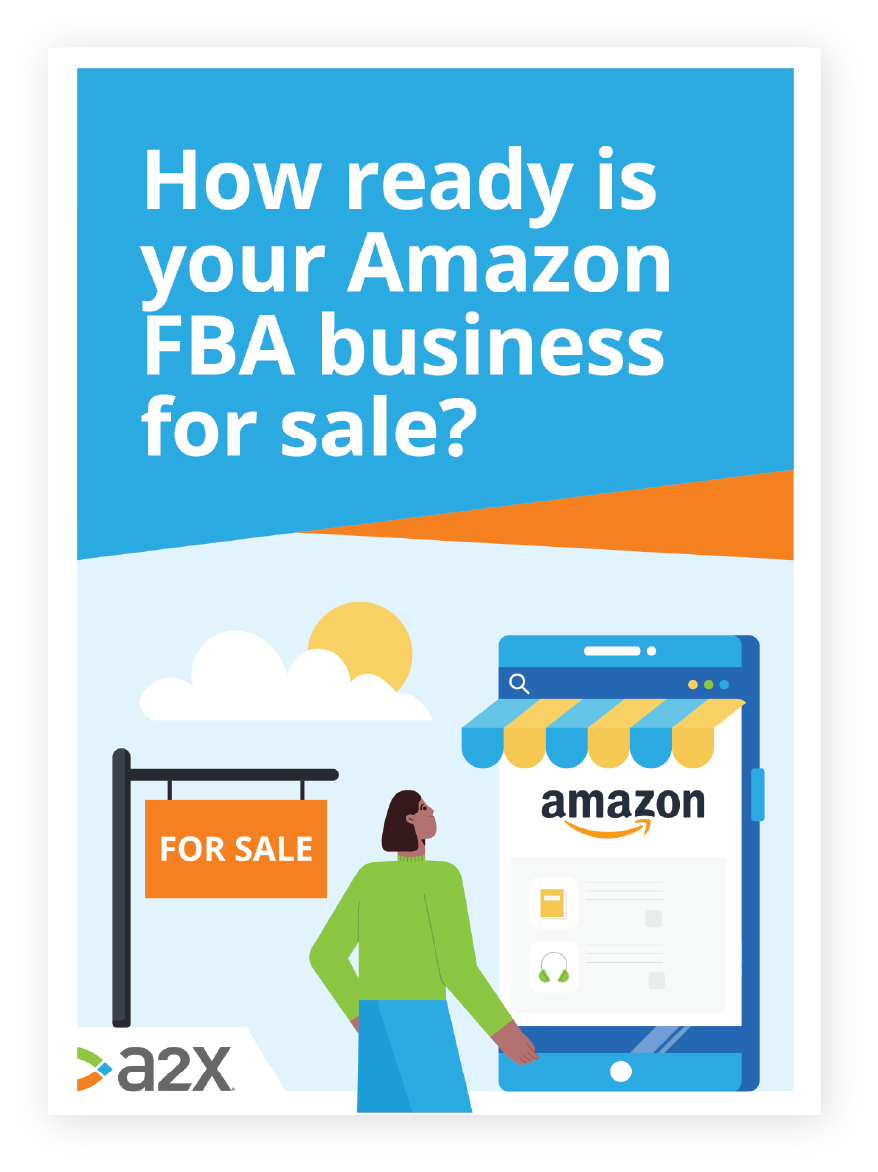
Do Your Financials Tell a Story That Sells?
Your accounts should offer insight into your business.
They should show successes, and they should show opportunities to help to pinpoint trouble areas. Having complete and accurate financials means that you, as an ecommerce seller, have the information you need to make better, smarter decisions about the future of your business. You know the true cost of sales, where you’re making and losing money, and where you could be investing more.
It also means that if you decide to sell, you are able to give potential buyers a clear picture of the financial health of your business. Only in doing this can you expect to get a fair price.
As Mark Daoust of Quiet Light Brokerage will tell you, working to achieve that financial oversight is worth doing. He breaks down the key areas to ensure you cover when looking to sell (and, really, any other time too):
- Clean books.
- Separate expenses.
- Accrual-based accounts.
Clean Books Are Important to Buyers
As a leading international online business broker and presenter, Mark helps broker online business sales.
It means he’s seen first-hand how much a sale price can be affected by financial statements that are unclear, or don’t include enough detail.
Buyers, he says, are motivated by three main factors:
- Financial return – is this a smart financial investment?
- Niche – is there a unique market for this product?
- Lifestyle – will running this business fit with my lifestyle?
While niche and lifestyle are definitely motivating factors, financial return and ROI are the driving forces.
“In short, if there’s no return on investment, there’s no incentive to buy the business."
The primary way a buyer can see an online business’s potential and financial viability is to review the financials. As Mark points out, if books are unclear there’s the real risk of a lower-than-expected offer, or even worse – no offer at all.
Separate Your Expenses
Mark says a key mistake many online businesses make with their books is not separating out expenses.
Often, whether through laziness or convenience, people lump a whole variety of expenses under a ‘miscellaneous’ category, which creates a report that doesn’t give any real insight into actual expenditure.
Additionally, many Amazon sellers have multiple stores or brands and use shared resources to run these businesses, making it even more difficult to separate expenses out. Consequently, potential buyers are often unable to get an accurate read from the financials.
“Having organized books that are verifiable and separate from other business activities is crucial."
Mark suggests setting up separate businesses, but acknowledges this isn’t always practical. One solution is using an online accounting system that keeps track of expenses through classes or tags – both QuickBooks Online and Xero offer a version of this functionality.
“If shared resources are marked as such with multiple tags, then a potential buyer is able to see things in the financials a lot more clearly.”
Get Accrual-Based and Automated
Good financials should show a business’s efficiencies, as well as the things that are holding back growth. For that, it needs to be operating on an accrual-accounting basis.
Mark points to one instance where switching to an accrual-based system paid dividends. While the company’s previous cash-based reporting was accurate, it represented things differently, which impacted on their valuation.
“With accrual accounting, the business gained in value by 86 percent – it went from being valued at $475,000 to nearly $900,000.”
But, as any Amazon seller will tell you, switching to true accrual accounting is easier said than done. Working only with Amazon’s reporting it’s extremely difficult and time consuming to reconcile accounts month to month while also including detail around fees, currency-exchange costs and other expenses.
Software such as A2X helps by automating the process, removing room for human error, and dramatically reducing time spent. Integrated with QuickBooks Online or Xero, A2X seamlessly imports the right data from Amazon, split across months, making it simple to accurately reconcile accounts. As Mark explains, that information is worth working for.
“Clean, clear books let a buyer see the strengths and weaknesses as well as the opportunities that are there for the business to grow."
Sell (and Run) Your Business Better with A2X
Without A2X, Amazon will send your transaction data to your accounting software without any real detail.
In order to calculate your fees paid, reimbursements received, sales tax collected, COGS, profit margins (and more), you’ll need to settle in for the night for some good old fashioned manual number crunching.
Turn those hours into minutes and rule out the chance of human error by integrating A2X with Amazon and your accounting software. This will make your accounts a breeze not only when it comes time to sell, but throughout your entire business journey too.
Is now the best time to sell your Amazon FBA business?
How attractive would your business be to buyers? Are there things you could do to increase its value? Find out with our free assessment tool.
Download our free guide

